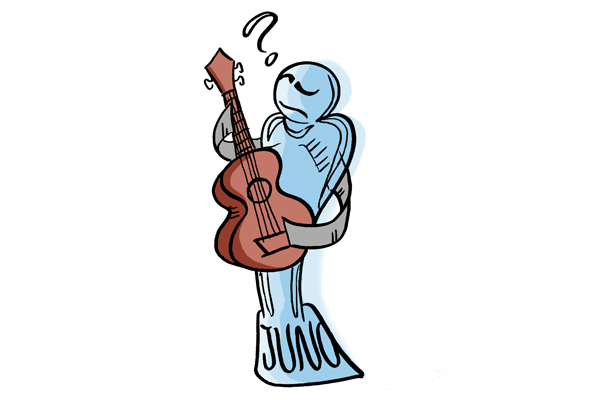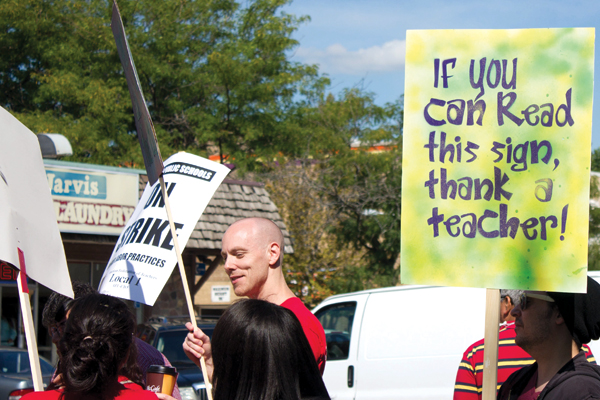Instead of sending out mass emails, listen to student concerns
Content warning: Suicide
Dear Editor,
I want to talk about the conversation around mental health on this campus, given recent events, because in my view, it is sorely lacking.
Not from news outlets, and not from students, but from the administration.
The Fulcrum just published a comprehensive and thorough editorial about the issue, with a concrete action plan the university should implement. Hopefully, that will bring about some much-needed change and for this, I thank you.
See, it usually takes some media attention to get some action out of the University of Ottawa administration but it seems that even headlines aren’t enough to get them to address the mental health crisis that is permeating our campus.
Because that’s what it is — a crisis. We know the statistics: that suicide accounts for 24 per cent of all deaths among 15-24 year olds; That one in five people will experience a mental health problem in any given year. Add to that the overnight and overwhelming support for the Facebook group, U of O Collective 4 Mental Health, and the thousands of student signatures on a petition for improved mental health services created by Max Lê, a co-founder of the group, and it’s apparent that this is a problem that students have been dealing with quietly for years.
Many students just didn’t think anyone would listen, and in part they’re right. I find it commendable that students are taking the initiative to create new spaces to share experiences and demand action when it comes to mental health, but frankly, it’s not their responsibility.
It is the responsibility of the university administration, of our student unions, of our doctors, of our professors, to make our campus a safe space, to encourage students to talk openly about their mental health and to direct them to resources but also, to be open to criticism when it comes to the services that are currently offered.
I know that the U of O has put a lot of money and thought into a new system to meet increasing mental health care needs — but it’s not enough, and they need to acknowledge that.
They need to acknowledge that despite their best efforts, they aren’t doing enough, and that’s how a lot of students feel on any given day. Instead of fearing critique, I urge the university to just hear us.
It’s not enough to throw money at a problem and call it fixed. It’s not enough to send out mass emails in a saved template every time a student dies and hope that no one will ask questions. And guess what: shoving a list of resources down our throats with little context and zero efforts at trying to understand how students experience these resources is also not going to cut it.
This applies to the University of Ottawa Students’ Union (UOSU) as well. Where the U of O administration is disconnected from students, the UOSU is not. In fact, they are the bridge between students and the administration. They are the administration’s first point of contact, but to properly convey the concerns students have over mental health resources, they need to know what they are.
I received a mass email from the UOSU about the most recent student death that left me feeling confused and offended. The email mentioned the student by name, it had a picture of him, it offered resources. What it did not do was take a stance on mental health. What it did not do was acknowledge that this is the fourth in a series of student deaths that have occurred over the last eight months. What it did not do was supply students with actions that the student union could or would take to help make mental health a priority. What it did not do was make me feel heard.
There was also a section at the end that encouraged students to “discuss their concerns about the university’s recent statement and actions” with the francophone affairs commissioner, stating that the UOSU “is committed to promoting your needs at the university and bringing pressure where it is needed.” Finally, it is signed “in solidarity.”
I take issue with these things for a few reasons. Asking students to contact the UOSU about concerns with the university’s actions and statements takes the onus off of the student union to start that initiative. If they were really committed to promoting student needs, they would state the problem clearly, without having it be implied that mental health is important. They could create a mental health task force, instead of having students send their emails to a member of the union heading a separate file. At the very least they could acknowledge their presence in the Facebook group where these suggestions are being made.
People in power at this university keep telling us to seek help when we need it. That’s exactly what we’re doing now.
To the UOSU, the student body elected you last year over the Student Federation of the University of Ottawa for a reason. Show us that we were right in doing so.
And to the university administration, if you’re reading this, please know that this problem is not going to go away. It is not going to fix itself, and it’s not going to be forgotten. This is by far not the only campus where mental health is a growing problem for students and staff, but it is our university, and we can be a leader in tackling this problem if you so choose.
Finally, for the love of all that is good, please stop sending me performative mass emails. What I really want is for you to listen and to act.
Anchal Sharma is a communications student at the University of Ottawa and the creator and host of One in Five, a mental health podcast for the Fulcrum and CHUO 98.1 FM. Want to share your story? Email her at oneinfive@thefulcrum.ca to be featured on the podcast.
A non-comprehensive list of local mental health resources appears below…
On campus…
- University of Ottawa Health Services (UOHS), 100 Marie-Curie Private
- Offers counselling, psychiatric services, individual, couple or family therapy, access to psycho-educational groups and referrals to specialists off-campus
- Student Academic Success Service (SASS), 100 Marie-Curie Private
- Offers individual counselling, peer-counselling, workshops, online therapy and group counselling using new stepped model; referrals
- Faculty mentoring centres (locations differ by faculty)
- Specialized mentoring services catered to the needs of students in each faculty
Off campus…
- Mental health hotlines…
- Drugs and Alcohol Helpline: 1-866-531-2600
- Fem’aide: 1-877-336-2433
- Good2Talk: 1-866-925-5454
- Kids Help Phone: 1-800-668-6668 or text CONNECT to 686868
- Mental Health Crisis Line: 613-722-6914
- Distress Centre of Ottawa and Region: (613) 238-3311
- Ottawa Rape Crisis Centre: 613-562-2333
- Tel-Aide Outaouais: 613-741-6433
- Trans Life Line: 1-877-330-6366
- Walk-in counselling clinics (six Ottawa locations)…
- Somerset West Community Health Centre (55 Eccles Street)
- South-East Ottawa Community Health Centre (1355 Bank Street)
- Family Services Ottawa (312 Parkdale Avenue)
- Jewish Family Services of Ottawa (300-2255 Carling Avenue)
- Ottawa Community Immigrant Services Organization(959 Wellington St. W)
- CFS/SFC Ottawa (310 Olmstead Road)
- Community health and resource centres (13 in Ottawa)
- Carlington Community Health Centre (900 Merivale Road)
- Eastern Ottawa Resource Centre (215-1980 Ogilvie Road)
- Nepean, Rideau and Osgoode Community Resource Centre (1547 Merivale Road, Unit 240)
- Rideau-Rockcliffe Community Health Centre (225 Donald Street)
- Sandy Hill Community Health Centre (221 Nelson Street)
- South East Ottawa Community Health Centre (1355 Bank Street)
- Western Ottawa Community Resource Centre (2 MacNeil Court)
- Centretown Community Health Centre (420 Cooper Street)
- Lowertown Community Resource Centre (40 Cobourg Street)
- Orleans-Cumberland Community Health Centre (240 Centrum Boulevard)
- Pinecrest-Queensway Community Health Centre(1365 Richmond Road)
- Somerset West Community Health Centre (55 Eccles Street)
- Vanier Community Service Centre (270 Marier Avenue)






